Capt. John Earnescleugh Brydon
An exceptional unusual marker, due in part to the very recent construction of a replacement cross which will be returned to the family plot in Darlington Cemetery. Special thanks to Johnny Brydon for this fabulous story.
Location address: With the family at a private address, Shrewsbury
Details on cross:
on Crossbar
Capt. Brydon J. E.
RAMC
on beams
4th batt
Yorks regt
on post
Killed
in
Action
27-6-17
Text type (e.g. hand-written, GRU tags, carved): painted
Cross dimensions (millimetres please) unavailable
Other information
Mounting to wall: Not currently mounted
Condition (cracked, paint peeling, woodwork, damage etc): Very damaged, little of the cross remains.
The story:
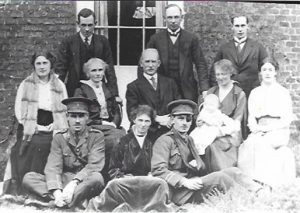 Capt. John Earnescleugh Brydon’s cross (killed in action 17th June 1917 ) was retrieved from the family plot in Darlington 30 years ago by his great nephew. His sister went to France in 1918 and took it from his original grave at St Martin sir Cajeul . He was a doctor who gave his gas mask to a patient and subsequently died. The family have had an exact replica made out of oak and intend to reposition it on the family plot this year, the centenary of his death.
Capt. John Earnescleugh Brydon’s cross (killed in action 17th June 1917 ) was retrieved from the family plot in Darlington 30 years ago by his great nephew. His sister went to France in 1918 and took it from his original grave at St Martin sir Cajeul . He was a doctor who gave his gas mask to a patient and subsequently died. The family have had an exact replica made out of oak and intend to reposition it on the family plot this year, the centenary of his death.
His obituary in the local paper read :-
“DARLINGTON DOCTORS DEATH
VICTIM OF GERMAN GAS ATTACK
With feelings of deep regret many people in Darlington have learnt of the death whilst on active service of Captain John Earnscleugh Brydon, R.A.M.C son of Mr John Brydon of Milbank, head of Messrs Kent and Brydon, seed merchants and nurserymen.
He died in hospital in France on June 27th 1917 from the effects of gas. His elder brother James Dempster Brydon has also been wounded.
Capt. Brydon, who was the fourth son of the family was 31 years of age was born at Milbank and was well known and popular amongst a wide circle in his native town. He was educated at Richmond Grammar school and at Edinburgh University where he took his degree in medicine and was for some time house surgeon at the Darlington Hospital and practised for some two years at Corbridge on Tyne where he took a keen interest in athletics, as he had done for some time. When war broke out he was in practice in Chagford in Devonshire. Already a Territorial, he volunteered for active service by virtue of his profession and was attached to the R.A.M.C. going to the front in April 1915. He was badly wounded in December of that year as a result of which he lost completely the sight of one eye. Despite this disability he was eager to return to his duties at the front, but several medical boards rejected him. Such was his undiminished spirit of patriotism that he appealed direct to the war office and was given permission to return to France. Posts outside the danger zone were offered to him. But his ardent desire was to be in the fore front of battle and he was eventually attached to the 4th Yorkshires, with whom he was serving when he came into contact with the fatal fumes that led to his death
In a letter to Mr Brydon, senior., Lieut.-Col. Deakin, commanding officer of Captain Brydon’s battalion, says,:- “ I am writing on behalf of all ranks of the battalion to express to you our deepest sympathy in the death of Capt. Brydon. He died from the effects of gas. We were with him most of the time, and I can honestly say he suffered none of those terrible sufferings of the early chlorine gas. He just got weaker and weaker till his heart gave out, and as far as I can tell he suffered no pain. I don’t think there is an officer or man in the battalion who has not felt his death. He was a wonderful regimental doctor Always cheery, always working for the men’s welfare. We were all devoted to him. I feel personally that I have lost a dear friend, and I shall be grateful all my life for having known him. There is nothing I can say to make this easier for you, but I thinkif you could have heard all the men said it would have been a little help to you in this terrible trouble. What I feel is so sad about is that it should have happened to a man who so gallantly preferred to soldier with an infantry battalion to a safe job farther back.”
A hand written post script at the foot of this obituary reads as follows:- A German shell burst one of our gas cylinders filling the dugout where he was dressing wounded soldiers. He apparently gave his gas mask to a patient and became overcome by the gas.

Survey, photographs and research courtesy of Johnny Bryden
Date of Survey – 30/07/2017
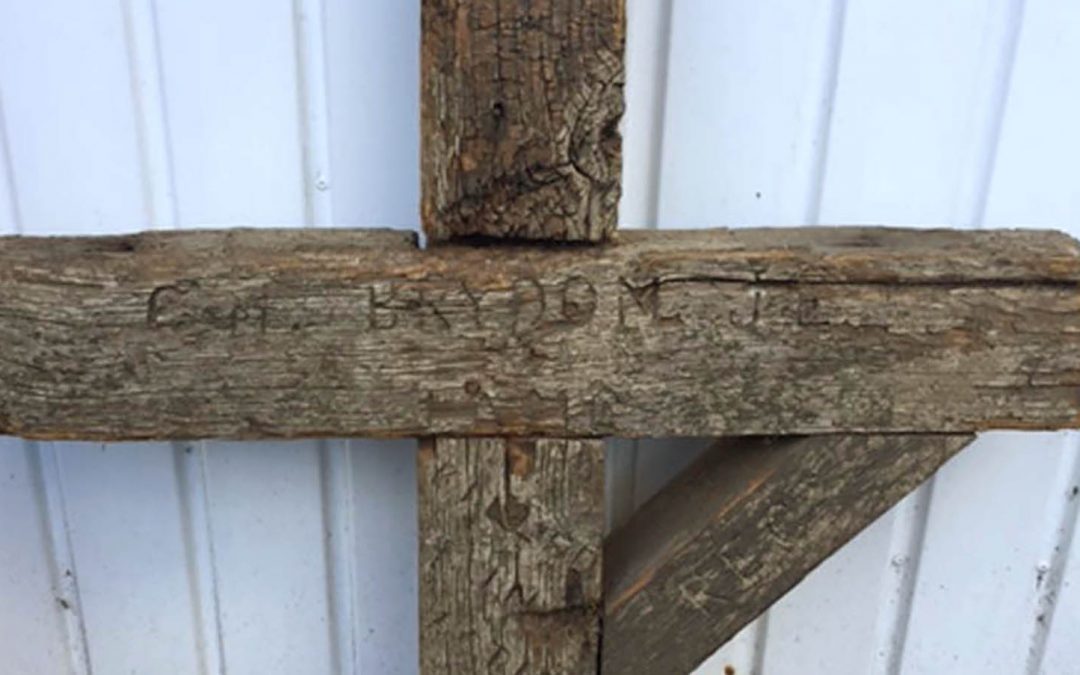
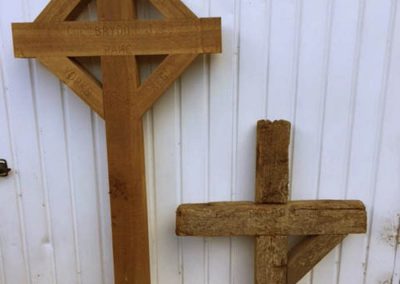
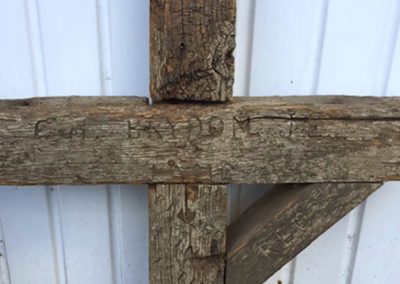
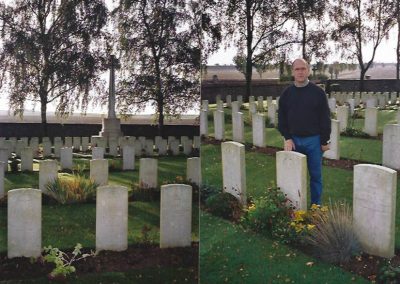
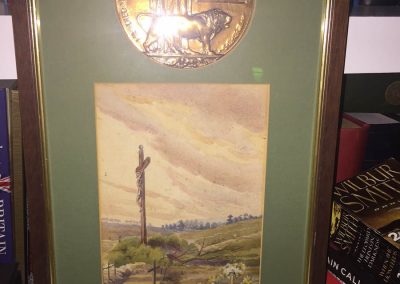
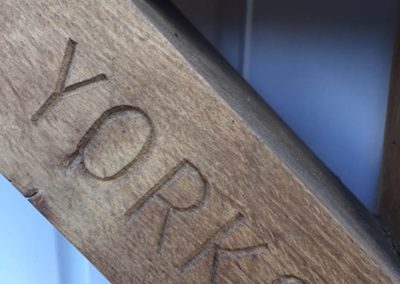
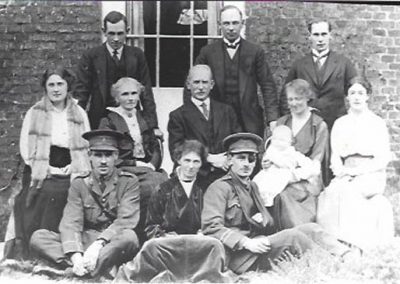
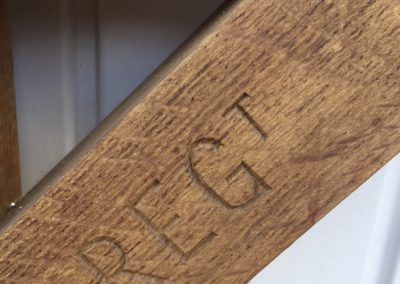
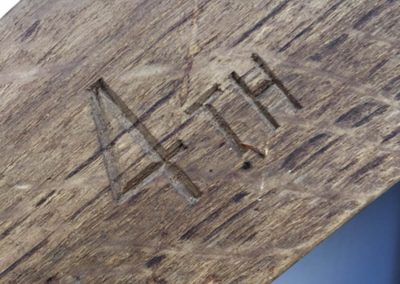
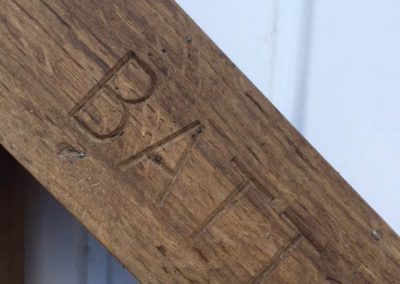
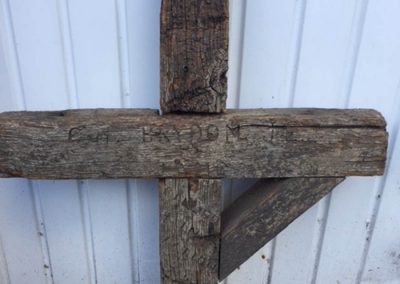
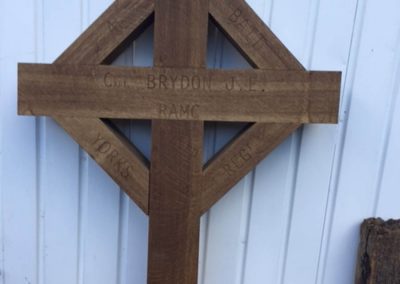
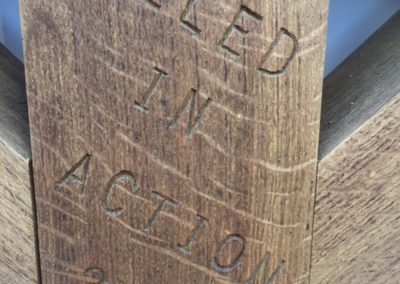
I would be grateful if the following message could be brought to the attention of Johnny Brydon.
I run a website for the Remembrance of the men of the Yorkshire Regiment who fought and died in the First World War,
– website address is as attached to this message.
I would be extremely grateful to be able to use a photo of Captain Brydon’s battlefield crosses, as well as the photo of Captain Brydon with his family, on this website. Photos of reasonably high resolution would be appreciated, and will, of course, be acknowledged as being the copyright of Johnny Brydon.
Additionally, as a Friend of the Green Howards Museum in Richmond, I might suggest that the battlefield crosses could possibly be transferred to the care of the Museum rather than be left to the vagaries of the weather in the cemetery in Darlington. There is a precedent for this in that the battlefield cross of Private Major was rescued by Sean Godfrey, Chairman of the Cleveland Branch of The Western Front Association, from Darlington West Cemetery (presumably near the family grave of the Major family) in the mid-1990s and was presented to the Green Howards Museum for safe keeping.
– see page for Green Howards Museum in the website address attached to this message.
If such a suggestion is acceptable, then I could arrange for the Curator of the Green Howards Museum in Richmond to directly contact Johnny Brydon.
(The First World War Yorkshire Regiment was also known as the Green Howards, which became the official name of the regiment in 1921.)
If Johnny Brydon could contact me on this matter, I would very much appreciate it.
Regarding an article in this website dated 20 September 2017 on the Battlefield Cross for Captain Brydon, I would very much like to contact the author, – Johnny Brydon.
I would be grateful if you could put me in touch with Johnny Brydon.
Thank you.
Hi Edward
Thanks for your post
I will be in touch
Kind regards
Johnny Brydon
Tel 07969694987